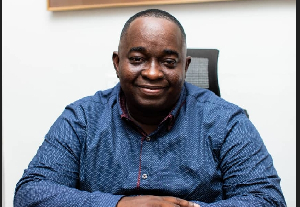The Asantehene, Otumfour Osei Tutu has identified the lack of dialogue in solving faith-led conflicts in the world as a major ‘missing link’ and has therefore entreated the global community especially where there are severe conflicts as a result of faith and religion to emulate the Ghanaian example to ensure absolute peace or impressively reduce conflicts for the benefit of their people.
He said Ghana is one country that faith and religion have not been much of a problem primarily due to how they have been managed. He said it has been useful experience that the world can tapped to ensure global peace.
“In Ghana, the Moslem Council, the Christian Council and the allied bodies, as well as the National Peace Council, maintain a continuous dialogue on issues affecting the peace and security of the Nation. Moslem leaders consider it as their duty to confront any doctrinal issues relating to their faith regardless of the source and they see this as their natural role to defend and protect their faith.” He noted.
Otumfour Osei Tutu was delivering a lecture at the, Chatham House in London – United Kingdom on the topic ‘Interfaith Dialogue Across Africa.’
Chatham House is a world renowned research and think tank institution based in London. It does research on very topical matters affecting the health, political, security, as well as economic around the globe.
In Africa, it explores key political, economic and social developments in sub-Saharan Africa, with areas of focus on Angola, Central Africa and the Great Lakes, East Africa, the Horn of Africa, Nigeria, southern Africa and West Africa. Projects on this region include work on EU-Africa relations, economic growth and investment, extractive resources and society, and African maritime security.
The issue of faith and religion which have been the bases for severe conflicts and crime around the globe has been in the centre of discussion at the institution for some time now.
The Asantehene noted the Ghanaian leadership over the years has worked to ensure all Moslems including the youth and their leaders as well as scholars to see the portrayal of their faith as anything other than a peaceful religion and they are in the media at “every opportunity to affirm what they consider to be true faith.” He observed.
The Asantehene expressed the hope that if this practise is replicated in the countries in Africa, for example it would have been very difficult to recruit young men and women on suicide missions in the name of religion.
He said the world cannot gloss over the intra-faith conflicts within Christian community nor condone the conscious actions calculated to provoke other faiths but there was the need to address all of these. For him, in this world of expanded education, with open access to information and the exchange of ideas, “you cannot bomb the faith out of a people any more that you can impose it on them thorough the bullet.’ But we can dialogue with them to stop it.” He observed.
“Encouraging such dialogue must therefore be useful, but given the scale of the global problem and the dimension of the danger to global and security some other mechanism may be needed to produce the right result.” He stressed.
He noted that hijacking of aircrafts, kidnapping, of innocent individuals, and the use of idealistic, youth, including children and girls, as suicide bombers signals a new threat to the peace of the world and called for a more pragmatic approach such as involvement, in all societal activities and ensure the sense of belonging among the youth.
The Asantehene recounted the huge military expenditure as against radicalism where the United States alone spent an estimated amount of eight trillion dollars in fighting such crimes out of faith conflicts and hoped this could have been channelled to other meaningful global ventures.
He said the world economic forum must search for a right template to combat the current phenomenon of faith-led conflicts.
“I have moved from my little corner of Kumasi to Chatham, the forum where Mahatma Gandhi stood in 1931 to argue the case for Indian independence where great minds have help” to pursue this important global agenda.” Said the Asantehene
The former Anglican bishop of Botswana Musonda Trevor Mwamba chaired the event which was attended by large audience comprising both members and non-members of the institute.
Diaspora News of Wednesday, 25 November 2015
Source: SIFAT COMMUNICATIONS – UK













